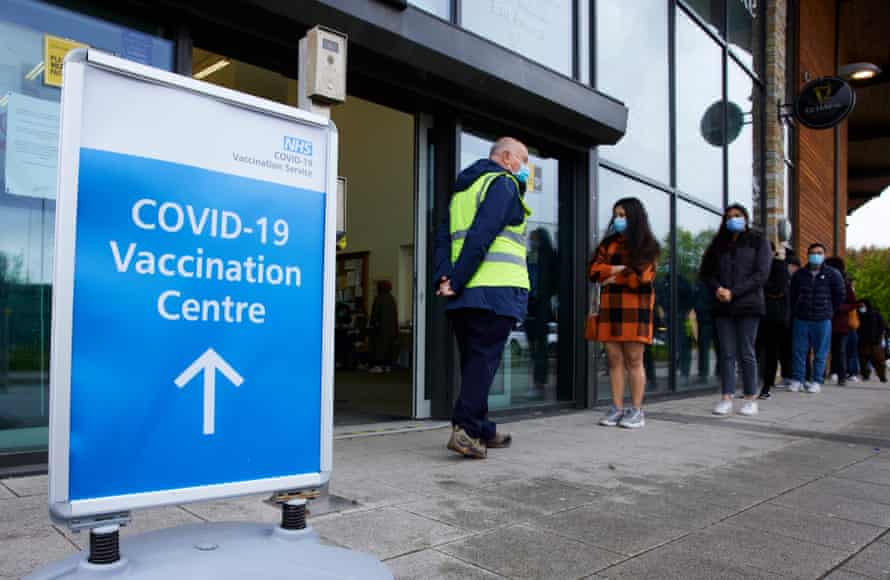Towns such as Bolton and Blackburn-with-Darwen are facing a deep health and economic crisis due to a growing number of long Covid cases keeping people out of work and placing a “double hit” of pressure on the NHS, health officials have said.
Research seen by the Guardian suggests more than 140,000 people in north-west England had long Covid – meaning they had symptoms for at least 12 weeks – last year.
Health teams in coronavirus hotspots said they were increasingly concerned about the long-term impact on children and young people, who account for the vast majority of cases of the highly transmissible Covid variant first identified in India.
Lynn Donkin, the assistant director of public health for Bolton, said the town would be dealing with the effects of Covid for years. “The impacts aren’t just the immediate impacts of being off with Covid but also potentially those longer-term impacts, not just long Covid but also the mental health impact, particularly in terms of disruption in schools.”
People as young as 16 have been offered the vaccine in parts of Greater Manchester this week as local health officials scramble to contain the B.1.617.2 variant. The variant has spread rapidly through children and young people in densely populated and more deprived communities after being imported from India in late April. In Bedford and Bolton, cases are highest among 10- to 14-year-olds, who are unlikely to become seriously ill but can still pass on the disease.
Research by the Cumbria and Lancashire Public Health Collaborative estimates that more than 140,000 people in north-west England had long Covid last year. The figure is based on Office for National Statistics data suggesting that about one in 10 people with Covid experience symptoms beyond 12 weeks.

An internal report by the group states: “The impact of long Covid is likely to be greater in the north due to employment and economic inequalities and variations in health care access due to the pandemic. Long-term conditions are likely to increase, deepening health inequalities among people who were at greater risk of poor overall health before contracting Covid-19.”
Structural inequalities such as deprivation, chronic illness, cramped housing and poorly paid insecure work have been linked to higher rates of death and Covid infection.
Prof Dominic Harrison, the director of public health at Blackburn-with-Darwen council and chair of the Cumbria and Lancashire Public Health Collaborative, said there was a “very real risk” that without additional NHS investment “our emerging post-Covid health crises across the north-west could generate an economic crisis”.
He said: “The north-west as a whole and areas like Blackburn-with-Darwen, Bolton, Burnley and Oldham are going to have the highest long Covid burden once we get past the current stage of this pandemic. The north-west region and these local authority areas already have among the highest levels of non-treated chronic disease and some of the highest waiting lists for treatment. They will have a double hit of excess demand on the health and care system as we come out of the Covid pandemic.”
North-west England has recorded more Covid-19 deaths and infections per capita than anywhere in the UK. The region’s coronavirus mortality rate is 29% higher than south-west England, having recorded twice the number of cases per 100,000 people.
This week, health teams in the region departed from the government policy of vaccinating only people aged over 35 as they try to limit the spread in high-risk areas. In Manchester, 16-year-olds who live in multi-generational households were offered the jab from Friday in eight neighbourhoods where cases could spread rapidly.
The city said it was complying with guidelines from the Joint Committee on Vaccinations and Immunisation (JCVI), which state that there can be “flexibility in vaccine deployment at a local level with due attention to mitigating health inequalities, such as might occur in relation to access to healthcare and ethnicity.” The JCVI specifically says this can mean vaccinating people in multigenerational households.
David Regan, Manchester’s director of public health, said the city was in a “race against time” to use the vaccine to shield its most vulnerable communities from rising infection rates.
This content first appear on the guardian
